Elnaz Soleimani
Generic Semi-Supervised Adversarial Subject Translation for Sensor-Based Human Activity Recognition
Nov 11, 2020
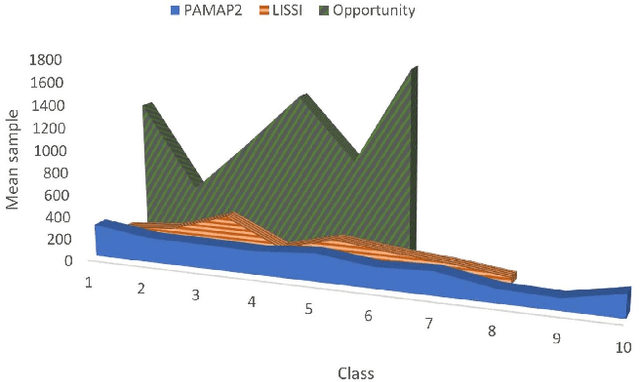
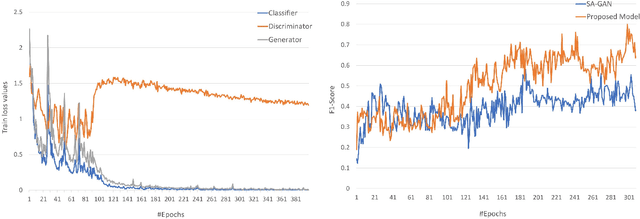
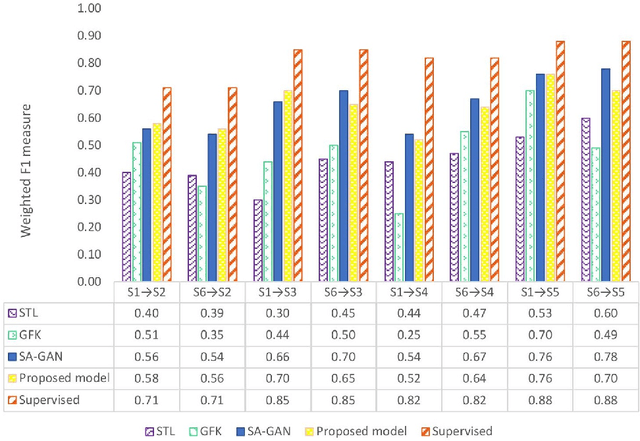
Abstract:The performance of Human Activity Recognition (HAR) models, particularly deep neural networks, is highly contingent upon the availability of the massive amount of annotated training data which should be sufficiently labeled. Though, data acquisition and manual annotation in the HAR domain are prohibitively expensive due to skilled human resource requirements in both steps. Hence, domain adaptation techniques have been proposed to adapt the knowledge from the existing source of data. More recently, adversarial transfer learning methods have shown very promising results in image classification, yet limited for sensor-based HAR problems, which are still prone to the unfavorable effects of the imbalanced distribution of samples. This paper presents a novel generic and robust approach for semi-supervised domain adaptation in HAR, which capitalizes on the advantages of the adversarial framework to tackle the shortcomings, by leveraging knowledge from annotated samples exclusively from the source subject and unlabeled ones of the target subject. Extensive subject translation experiments are conducted on three large, middle, and small-size datasets with different levels of imbalance to assess the robustness and effectiveness of the proposed model to the scale as well as imbalance in the data. The results demonstrate the effectiveness of our proposed algorithms over state-of-the-art methods, which led in up to 13%, 4%, and 13% improvement of our high-level activities recognition metrics for Opportunity, LISSI, and PAMAP2 datasets, respectively. The LISSI dataset is the most challenging one owing to its less populated and imbalanced distribution. Compared to the SA-GAN adversarial domain adaptation method, the proposed approach enhances the final classification performance with an average of 7.5% for the three datasets, which emphasizes the effectiveness of micro-mini-batch training.
Cross-Subject Transfer Learning in Human Activity Recognition Systems using Generative Adversarial Networks
Mar 29, 2019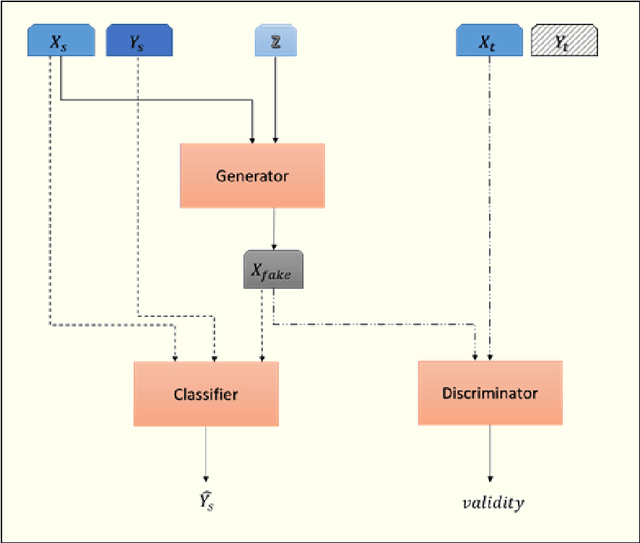
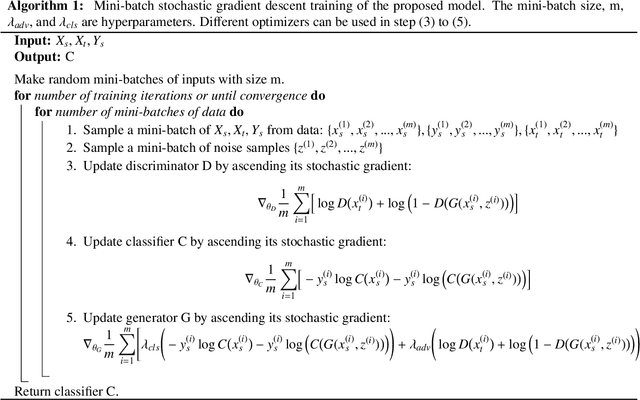
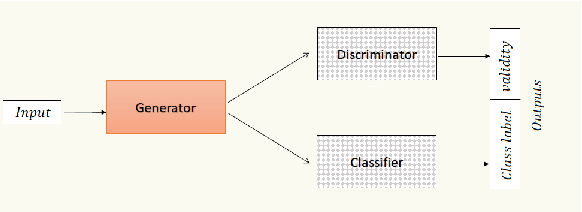

Abstract:Application of intelligent systems especially in smart homes and health-related topics has been drawing more attention in the last decades. Training Human Activity Recognition (HAR) models -- as a major module -- requires a fair amount of labeled data. Despite training with large datasets, most of the existing models will face a dramatic performance drop when they are tested against unseen data from new users. Moreover, recording enough data for each new user is unviable due to the limitations and challenges of working with human users. Transfer learning techniques aim to transfer the knowledge which has been learned from the source domain (subject) to the target domain in order to decrease the models' performance loss in the target domain. This paper presents a novel method of adversarial knowledge transfer named SA-GAN stands for Subject Adaptor GAN which utilizes Generative Adversarial Network framework to perform cross-subject transfer learning in the domain of wearable sensor-based Human Activity Recognition. SA-GAN outperformed other state-of-the-art methods in more than 66% of experiments and showed the second best performance in the remaining 25% of experiments. In some cases, it reached up to 90% of the accuracy which can be obtained by supervised training over the same domain data.
 Add to Chrome
Add to Chrome Add to Firefox
Add to Firefox Add to Edge
Add to Edge